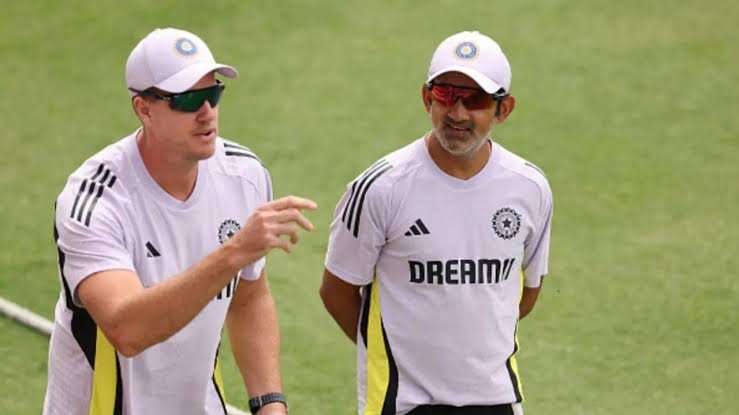
India’s unexpected 30-run defeat to South Africa in the opening Test at Eden Gardens has sparked widespread criticism, with former pacer Venkatesh Prasad publicly questioning head coach Gautam Gambhir and chief selector Ajit Agarkar. The low-scoring thriller exposed deeper concerns about India’s Test team structure, decision-making, and long-term planning.
Batting Collapse Highlights India’s Struggles
Playing without captain Shubman Gill, who was sidelined due to a neck spasm, India were set a small fourth-innings target of 124. What looked achievable quickly turned into a disaster as the hosts folded for 93, undone by South African spinner Simon Harmer’s four-wicket burst.
The collapse was particularly disappointing considering India were playing at home, where they have traditionally dominated in Test cricket.
Controversial Eden Gardens Pitch Adds to the Drama
The Eden Gardens surface became a major talking point throughout the Test. The pitch offered variable bounce from the opening session, making run-scoring extremely difficult. Only one batter across both teams — South Africa’s captain Temba Bavuma — managed a half-century, scored in the third innings.
While conditions were challenging for both sides, critics argue that the unpredictable pitch should not overshadow India’s poor decision-making and flawed Test approach.
India’s team combination drew heavy criticism. The management chose to field four all-rounders and surprisingly promoted Washington Sundar to No.3 instead of selecting a specialist batter such as Sai Sudharsan.
Venkatesh Prasad was among the first to question the strategy. He slammed the lack of clarity in selection, warning that India cannot claim to be a top Test team with such confused planning.
‘Not a Transition Issue’: Former Players Voice Concern
The debate intensified when domestic cricket stalwart Priyank Panchal backed Cheteshwar Pujara’s stance that India’s Test problems run deeper than a simple transition phase.
Earlier, Pujara had said that even in transition, India should not be losing Test matches at home. Panchal supported this, pointing out that India had dominated strong sides even during previous rebuilds.
He highlighted examples such as:
- The 4-0 victory over Australia in 2013
- The 2015 series win against South Africa
- The 2016 clean sweep against New Zealand
Panchal argued that the recent defeats show a fundamental problem in constructing solid Test innings.
India’s WTC 2027 Path Already Complicated
Under head coach Gambhir, India have now lost four of their last six home Tests, an alarming statistic for a team once unbeatable in home conditions. This dip in performance has made India’s journey toward the 2027 World Test Championship final significantly more challenging.
The repeated failures have raised questions over the team’s ability to adapt, plan selections strategically, and build partnerships under pressure.
Gill’s Injury Adds to India’s Woes
India also suffered a major setback in the first Test when captain Shubman Gill walked off after facing just three deliveries. He did not return for the remainder of the match and spent most of the Test receiving hospital treatment for his neck spasm.
His absence left India without leadership at a critical stage, further exposing the team’s fragile batting lineup.
A Crucial Test Ahead for Team Management
As India prepare for the second Test, pressure is mounting on both Gambhir and Agarkar to bring clarity, balance, and stability back to the side. Analysts and fans alike believe that a convincing response is needed — not just a victory, but a display that shows India are addressing the deeper issues that have begun to define their recent Test performances.
The coming days may prove decisive in shaping India’s trajectory for the rest of the WTC cycle.








